EXCLUSIVE ARTICLE |
||
|
||
EXCLUSIVE ARTICLE |
||
|
||
|
“The past is a foreign
country; they do things differently there.” 007 MAGAZINE guest writer DONOVAN MAYNE-NICHOLLS argues the case for Ian Fleming’s writings being read as the author intended rather than in ‘woke’ expurgated versions. |
|||
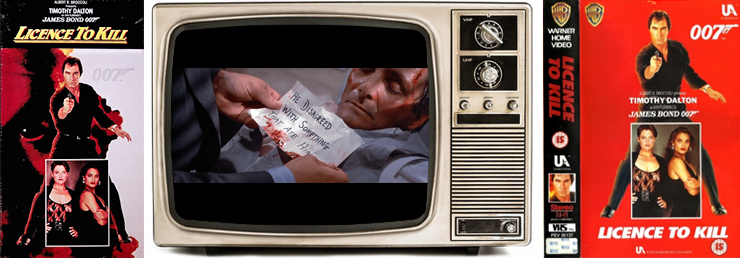 |
|||
|
A long time ago when people still watched VHS tapes on 4X3 TVs (Remember them? Were you even born then?), I was lucky enough to lay my hands upon several Bond movies in letterbox format; one of those movies was Licence To Kill (1989), which, to my disappointment, was the US version of the film, which cut some five seconds of gore to secure a PG-13 rating (first ever for a Bond). Unsurprisingly, the UK version was even more severely edited than that. |
|||
|
|||
|
Here in Chile, Licence To Kill was released uncut, so I had the luxury of watching the intended version of the film. Most hardcore Bond fans will be unable to make such an assertion. Now let’s jump to 2006, when the Bond collection was restored for DVD to tie-in with the release of Casino Royale (2006). Less than two decades after its original release Licence To Kill was then available to English-speaking audiences in its uncut form for good. Unless you expressly track down the first DVD edition, chances are you won’t have watched either of the censored cuts unless, like me, you are past a certain age (only the uncut version has ever been released on HD format, physical or otherwise). |
|||
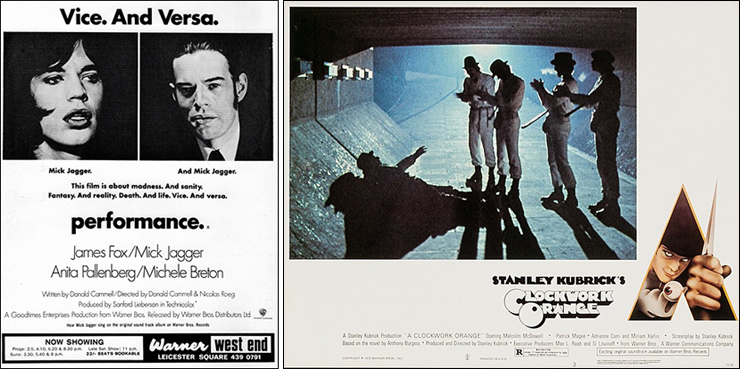 |
|||
|
Film fans have come to expect this development as an inevitable result of changing mores. What was once considered too explicit or gruesome for regular audiences has since become tame. Films such as Nicolas Roeg’s Performance (1970) and Stanley Kubrick’s A Clockwork Orange (1971), which had to be re-cut to secure an ‘R’ rating during their initial release, are now available in their ‘X’ versions. What’s more interesting in all these cases is that the film hasn’t been re-rated. The original rating has been kept for the uncut version – and it makes perfect sense: we see much worse on the daytime news than movies ever dared to show. |
|||
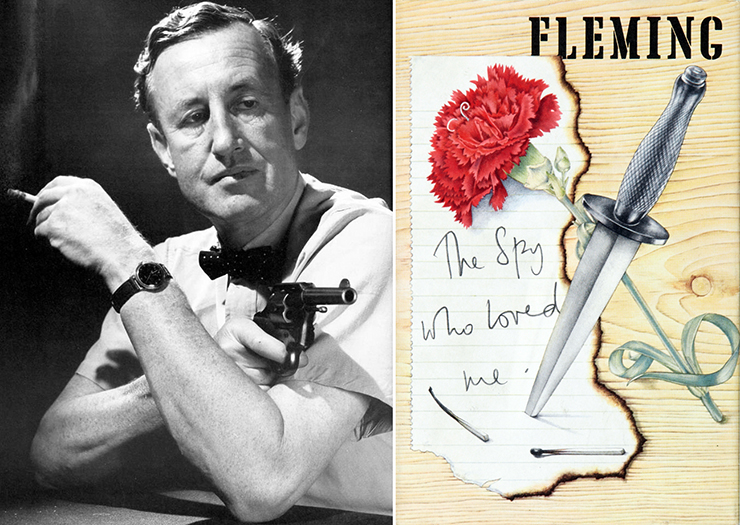 |
|||
|
This brings me to Ian Fleming Publications’ recent announcement that “edits” would be performed on the text of Ian Fleming’s novels to accommodate modern sensibilities. But surely, what was bold and daring back in the 1950s and 1960s should’ve by now become mild? In 1962, Fleming’s ninth Bond novel, THE SPY WHO LOVED ME, was published to much controversy. Gone was the glamorous, carefree adventure of previous instalments because Mr. Fleming had been appalled at discovering that the novels which he intended for the consumption of hot-blooded heterosexual adults, were then being read by schoolboys. James Bond novels had become a rite of passage into puberty for British teenagers, and this was even before Dr. No was released in cinemas later that year. I went through the same ritual a couple of decades later when I started reading Fleming’s books, first translated into Spanish, then in their original language. Instinctively, I would favour UK PAN Books editions to the more easily available US Signet editions whenever possible because even then I had noticed changes made to the text for American audiences (which I still find mind-boggling. Spanish literature is not “edited” to conform to Latin American readers. We may experience trouble when speaking to a Spaniard but we’re capable of reading their prose without assistance). I wanted Fleming’s Bond novels as close to their original typescripts as possible and, until recently, purchasing a UK edition assured you that the text would be the original (Fleming only agreed to the change of one name from the first to the second edition of DIAMONDS ARE FOREVER. It occurs only once in the text, so even when you’re reading the corrected text, you can mentally adjust it to its original form). |
|||
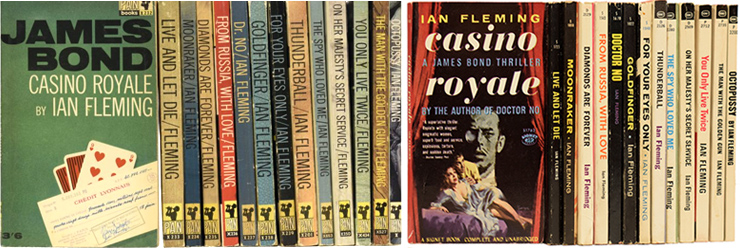 |
|||
|
2023 marks the 70th anniversary of the publication of CASINO ROYALE. By all intents, these books should have already become public domain. They’ve passed the test of time and proven they’re not merely yesterday’s bestsellers, they have acquired classic status. Unfortunately for their integrity, Ian Fleming Publications work under the delusion they can still sell truckloads of paperbacks, like they did in the 1960s. Worst of all, they are under the impression they can sell Fleming’s James Bond novels to people who don’t like Bond, period. |
|||
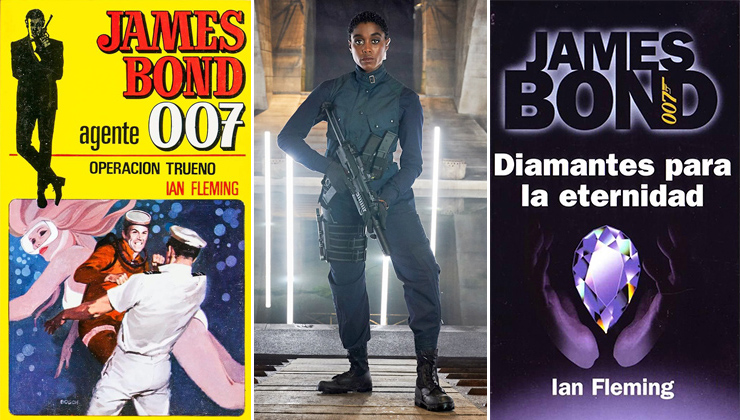 |
|||
|
When I started reading Ian Fleming around 1984, I was 12 years old, and my parents had already taken me to watch films intended for adults at our local cinema. No attempt was made to prevent me from reading these books, I was considered mature enough to understand them. Ian Fleming Publications (and EON Productions with their dismal No Time To Die) have finally conceded to a new breed of humans who go by the “woke” denomination. What IFP doesn’t get is that woke people don’t read books, the longest they can focus on the printed word comes in bite-size units (Tweets) and those among them who indeed can and do read, do it only for the purpose of censoring ideas which they’re against. Yes, the Bond novels present attitudes which speak of another era but isn’t that what makes them especially interesting all these decades later? Through the works of Conan Doyle, Agatha Christie, GK Chesterton etc., we can make the impossible possible: travel back in time. If you, like me, are capable of UNDERSTANDING WHAT YOU READ, you will be capable of giving a context to the works of the past. If you can’t, there’s no point in you even trying. The BBC caters to such people, presenting a make-believe version of British past which was “multicultural” before there was ever an empire. Why this obsession with revisiting the past if you’re invariably not going to like what you find there? Because it sells. Foreign audiences aren’t interested in British kitchen sink, they want their British product to have Victorian costumes and toy soldiers. Take Harry Potter, for instance, it stinks of Ye Ole England. Would it have become a worldwide success if Master Potter had attended a grammar school in Northern England like, say, Ken Loach’s Kes. Not bloody likely! |
|||
|
|||
|
Ian Fleming Publications is stating that it’s just a matter of a few words being deleted/altered here and there – it doesn’t matter. It does! It’s still censorship. I can understand that LIVE AND LET DIE is now conformed to the American edit because that was approved by Mr. Fleming himself in 1955, but their statement points towards further censoring of that tome. This is not an isolated issue. In 2015, IFP licensed their property to Dynamite Comics in the US. Originally a very high-quality affair, with writers who bothered to reread the Fleming originals for inspiration, it didn’t sell as well as hoped for. Dynamite retooled the magazine and more “inclusive” writers were brought in to push their agendas to unsuspecting Bond fans. A Korean-American writer came up with an awfully senseless story in which Bond played second best to Oddjob. I kid you not! Even to the extent that the love interest was given to Goldfinger’s manservant instead of to Bond. A second series, by two non-binary black Lesbian “writers” (if such a thing is indeed possible) made the protagonist female, barely interested in Bond (she is hinted at playing for the other team, as well) and involved Bond in an art fraud case which bore zero relevance to British Intelligence. These “writers” had Bond enter an open casino in London when everybody who’s ever read Fleming knows there isn’t such a thing in the British Isles and visit a museum which displays paintings (they clearly hadn’t heard that art is in fact displayed in galleries). Behind these decisions there is one common denominator, Ian Fleming Publications’ Managing Director, who authorizes these travesties to bear the Bond logo on the front page. |
|||
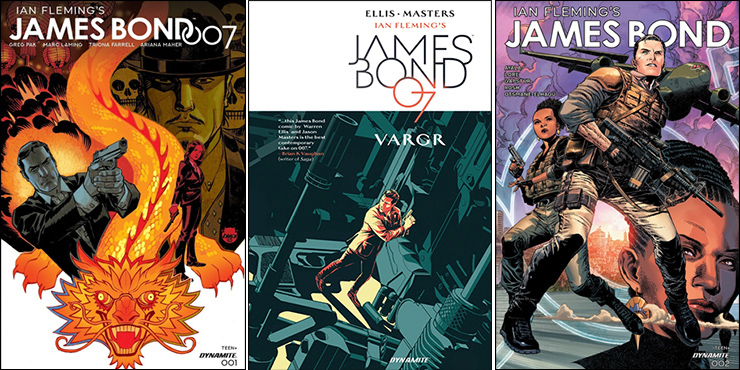 |
|||
|
And of course, there’s the Double-O spin-off, which presents an alternate universe in which everyone who works for the Ministry of Defence belongs to a British-hating ethnic minority… …but you can read about that in my ‘glowing review’ of that ‘masterpiece’ in DOUBLE OR NOTHING: IFP, PLEASE STOP! |
|||
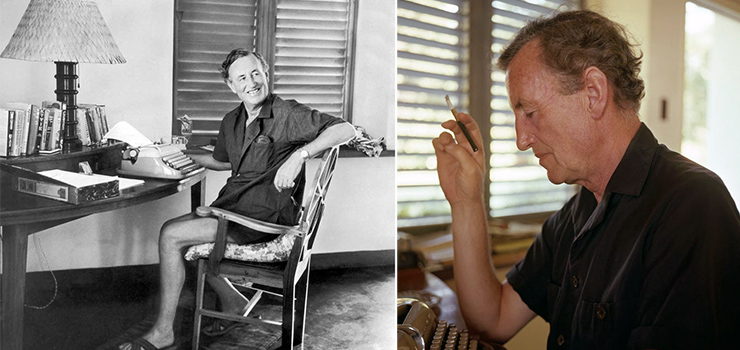 |
|||
|
Ian Fleming Publications’ announcement is more likely to scare prospective readership away than to gain them any new converts. Astute fans will go hunting for second-hand, out of print editions, which will net the publisher – zero pence! Fortunately, the copyright expiration date is coming closer. No doubt someone who really loves Bond will publish the novels and short stories as they were intended – for people who really wish to read the James Bond stories as Ian Fleming originally wrote them on his typewriter in the study of his house ‘Goldeneye’, in Jamaica. |
|||
|
Donovan Mayne-Nicholls was born in 1971. He graduated as a bachelor in English language from the Pontifical Catholic University, Chile, with a thesis analysing the short stories of Ian Fleming. He occasionally writes about movies for local online publications. |